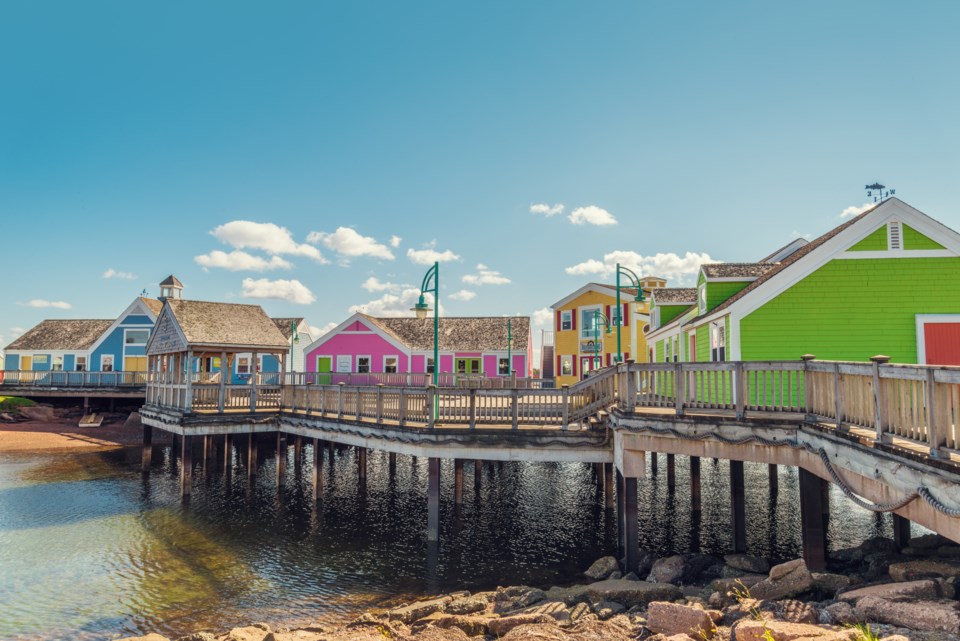This week, Prince Edward Island was the focus of the country for the first time since…well, surely there’s been another time. After political types studied the country’s smallest provincial election intently, are there lessons for the rest of the country?
Not really.
It’s too small, too homogenous (only 1.4% of Islanders are visible minorities), and too unique to draw many lessons that apply to New Brunswick, much less British Columbia. (None of those are criticisms, incidentally.)
But let’s look at some possible takeaways:
- Yes, Virginia, a positive campaign can work (in PEI).
Much has been made about the friendly and professional nature of PEI’s election campaign, where all party leaders refrained from personal attacks.
That’s obviously something to aspire to. At less than 143,000 residents, Prince Edward Island is essentially what would happen if Kelowna became its own province. It’s the kind of place where candidates are fully expected to knock on every single door in their riding, probably more than once. Your opponent is quite literally probably someone you and your family know well.
Negative campaigning is kind of like the prisoner’s dilemma: it’s easy to stay positive if you’re absolutely sure your opponents will do the same. But if they start taking shots, history (and pride) says you absolutely have to respond.
Given that negative campaigning has never really stopped in both B.C. and Canada, it’s hard to picture all the various party leaders unilaterally stowing their guns.
But PEI is a different kettle of potatoes. This was an election where, the day after, the respective – and respectful – leaders of the PC and Green parties shared a warm hug. It’s on video. In a province where “don’t touch me” was a significant moment of the last election – that’s close to unthinkable here.
- Polling continues to underestimate the Conservative vote
The one ongoing national trend that bore out was the persistent underestimation of the Conservative vote. It’s difficult to say whether pollsters just haven’t been finding representative samples, if people aren’t being honest, or just change their mind – or some combination of these and other factors.
Whatever the case, PEI proved no different than Alberta, Ontario, and elsewhere. Polls consistently showed the Greens in front, leading many to believe Canada might see its first Green (or at least, Green-led) government. Instead, they finished almost six points behind Dennis King’s Progressive Conservatives.
It’s a trend Andrew Scheer is hoping will continue nationwide.
- No, the Greens didn’t win – but their achievement is still impressive.
They didn’t exactly come from nowhere (they had two seats before the election) and again, disappointed some after leading the polls for so long. But with more than 30% of the vote, they tripled their vote from 2015, and seem to have cemented themselves beyond “protest vote” into “viable option.” They will either lead the next government, choose (and support) the next government, or be the Official Opposition.
I have previously referred to BC Green leader Andrew Weaver as Canada’s most successful and influential Green politician. And while I believe that’s still true (B.C. is simply much bigger), PEI Green leader Peter Bevan-Baker has at the very least entered the conversation.
- Proportional Representation continues to not happen.
This was complicated – as everything with PR seems to be – but it appears voters have rejected Proportional Representation yet again.
First, some credit: Prince Edward Island’s PR campaign did some things right. (PR in B.C. fans may want to skip ahead to the next point).
The referendum was held during a provincial election, gave voters just one PR system to consider (in this case, a form of Mixed-Member PR) and set a higher bar for change – the Yes side had to win a province-wide majority plus 50% of the votes cast in at least 17 of the 27 ridings.
It also made some very familiar mistakes, including punting crucial details until after the referendum – even the referendum commissioner said MMP needed “more meat on the bones.”
In the end, it won more ridings (15 to 12), but failed to win a majority of votes, and the promised PR utopia will have to wait a little longer.
- Much of a comment on the Liberals? Not really.
Yes, they lost government, and finished in third. But the Liberals were a single percentage point behind the Greens, and still managed six seats. PEI has traditionally bounced back and forth between the Liberals and Conservatives, and had been Liberal since 2007.
So while the result is hardly good for the local and federal Liberals, it’s not altogether surprising, and again – we’re talking about the smallest of sample sizes here.
- The NDP are not having a good electoral year.
The NDP were simply not a factor. They received just over 2,400 votes total, for just under 3% of the vote. Of their 23 candidates, just one managed a second-place finish, with the rest ending up in fourth, or worse.
After leader Jagmeet Singh finally won a seat in the House of Commons, the NDP hoped the extra media exposure for its articulate and dapper leader would give the party a bounce; that plainly hasn’t happened yet.
What does it all mean for Canada and B.C.? Probably nothing. But maybe something.
Maclean Kay is Editor-in-Chief for The Orca



